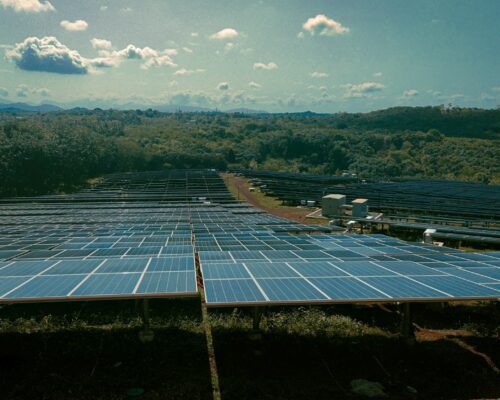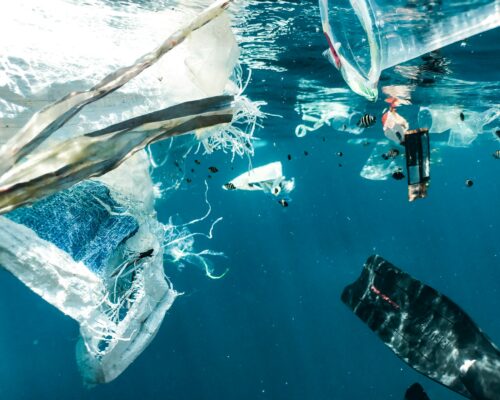Southeast Asia Oil and Gas Extraction to Escalate, Decarbonisation Goals in Jeopardy
Photo: Shutterstock / hlopex
09 June 2025 – by Tim Daiss
While a plethora of analysts, consultancies and intergovernmental organisations, including the International Energy Agency (IEA), are warning against more natural gas production, much of Southeast Asia is seemingly ignoring their advice. The region is considering the highest number of final investment decisions (FID) for oil and natural gas extraction projects in at least a decade, a new Global Energy Monitor (GEM) report found.
Natural Gas Development Projects in Indonesia, Malaysia, Vietnam, Brunei and Myanmar
However, just five countries in the region are pushing the gas development envelope even more. Indonesia, the region’s most populous country and its largest economy, has five projects under consideration. Vietnam has four. Malaysia has two. Both Brunei and Myanmar have one project each. All five countries are Association of Southeast Asian Nations (ASEAN) members.
Pending Upstream Projects
If approved, the projects would unlock an estimated 20 billion cubic metres per year (bcm per year) of additional natural gas production capacity. That’s an 18% increase over current output. Development of around 20 bcm per year would not only put these five countries’ decarbonisation goals in jeopardy but the entire region’s.
Failing NDC Scores
Complicating matters further, Indonesia, Vietnam, Malaysia, Brunei and Myanmar have already been called out for their continued natural gas development and emissions problems. Their respective Nationally Determined Contributions (NDC) also receive low scores. A country’s NDC outlines how it plans to reduce greenhouse gas (GHG) emissions per the Paris Agreement to help meet the global goal of limiting temperature rise to 1.5°C and adapt to the impacts of climate change.
Encroaching on Ecologically Sensitive Areas
Many of these gas exploration and extraction activities are also encroaching on ecologically sensitive regions like the Coral Triangle and the Mekong Delta, the GEM report said. The Coral Triangle is an area spanning six countries: Malaysia, Indonesia, the Philippines, Papua New Guinea, Solomon Islands, and Timor-Leste.
The Coral Triangle is sometimes referred to as the “Amazon of the Seas” due to its incredibly high level of marine diversity. Over 120 million people rely on the resources found there for their livelihoods. This biodiversity hotspot is home to 76% of the world’s coral species and supports the livelihoods of millions of people through fishing, tourism and coastal protection services.
Ignoring Climate Science
Though there’s mounting evidence proving the environmental dangers of natural gas production and usage, including methane leakage across the entire gas value chain, national governments are not heeding the warnings for several reasons.
First, most oil and gas majors are large publicly traded entities with global operations, and significant capital investments in exploration, oil and gas extraction and refining, along with oil and gas marketing expertise. They hold immense political and commercial power in developing countries with promises of economic development and job creation. National governments are largely in agreement with their strategies in what they see as using gas as a stopgap method to address short-term energy needs.
Some in the region also see liquefied natural gas (LNG) as a cheap and readily available fuel source for their prospective power generation sectors. However, LNG has a history of extreme price volatility due to supply disruptions, geopolitical events and oil price indexation. Overreliance on gas imports has already caused severe financial hardship for countries in the region, including Sri Lanka, Bangladesh and Pakistan.
False Narratives
Even though the oil and gas industry often pushes natural gas as a temporary fuel choice, behind that strategy is a harsh fact. Gas projects usually remain operational for decades.
“Since companies and countries are unlikely to abandon gas developments before reserves are fully depleted in order to ensure a complete return on investment, these developments would have a significant lifespan and would lock in gas as a substantial component of the region’s energy mix,” the GEM report added.
Promulgating natural gas as a transition fuel on the way to more renewable energy development is simply a false climate change mitigation narrative. When used for electricity production, natural gas emits at least half of the CO2 as does coal, the world’s dirtiest burning fossil fuel. Moreover, over a 20-year period, methane leakage traps around 80 times more heat in the atmosphere as does CO2.
Dangers of Gas Extraction
The process of gas extraction also includes fracking fluid recycling — a process of reusing wastewater generated during hydraulic fracturing (fracking) for subsequent operations. Both onshore and offshore gas extraction can use fracking.
However, fracking wastewater recycling does not return water to potability. The high concentrations of dissolved salts, chemicals and formation minerals found in flow-back and produced water make it nearly impossible to re-use, even as so-called “frack fluid”.
Gas development also often uses gas extraction substations. This is a facility where gas is removed from a well and then processed to eliminate impurities, including water and other condensates before it’s transported by pipeline. These substations, however, often have gas leakage problems, mostly methane, which add to the project’s overall GHG emissions.
Project Delays
There’s one silver lining in this unwelcome news for the region, however. The GEM report said that “several of these high-profile projects have already faced years of delays”. Consequently, as the energy transition gains momentum, the viability of these stalled developments should be reassessed.
“Rather than pursuing high-risk fossil fuel ventures, Southeast Asian governments have a critical opportunity to redirect investment toward clean, scalable energy systems that support economic resilience and align with global climate commitment,” the report said.
by Tim Daiss
Tim has been working in energy markets in the Asia-Pacific region for more than ten years. He was trained as an LNG and oil markets analyst and writer then switched to working in sustainable energy, including solar and wind power project financing and due diligence. He’s performed regulatory, geopolitical and market due diligence for energy projects in Vietnam, Thailand and Indonesia. He’s also worked as a consultant/advisor for US, UK and Singapore-based energy consultancies including Wood Mackenzie, Enerdata, S&P Global, KBR, Critical Resource, and others. He is the Chief Marketing Officer (CMO) for US-based lithium-sulfur EV battery start-up Bemp Research Corp.
Read more







